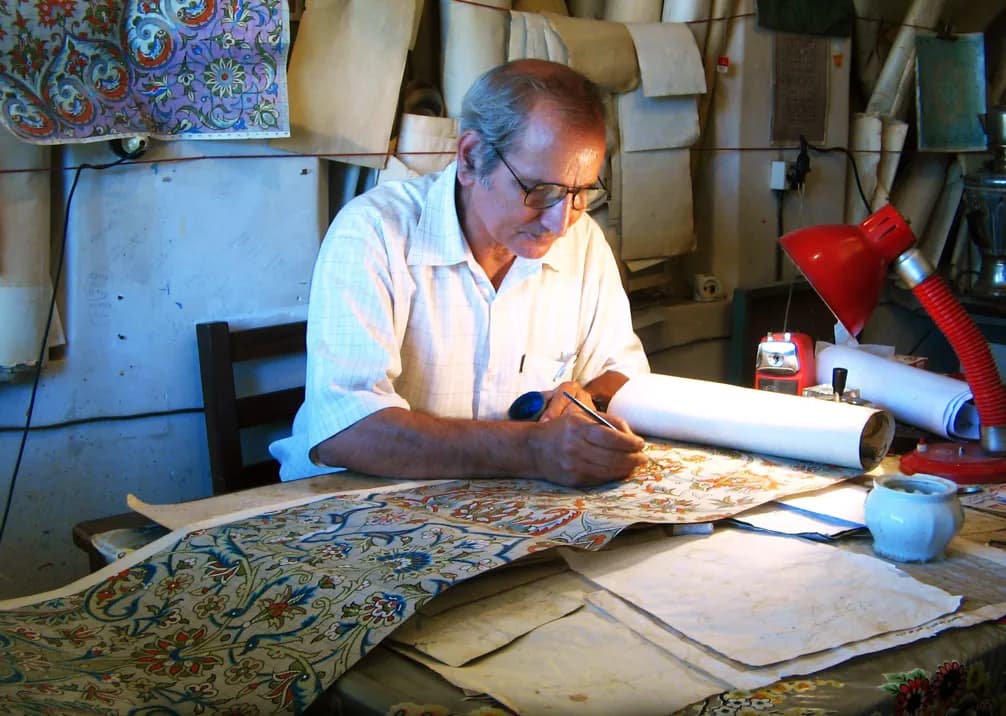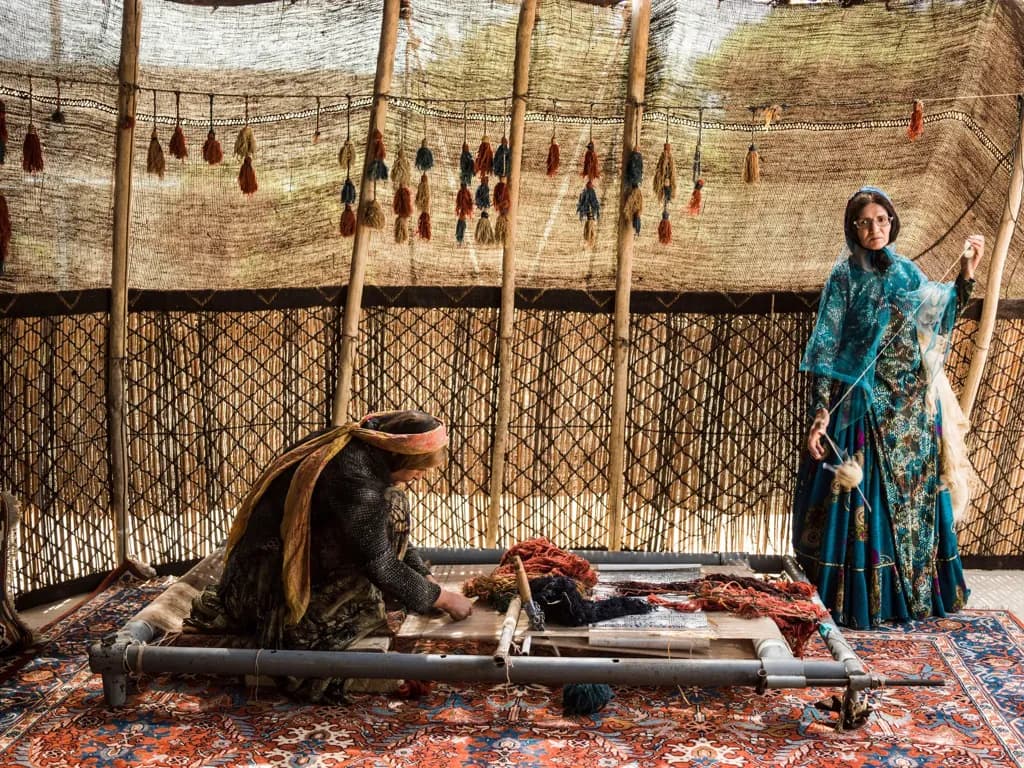Neyshabur rugs, originating from the ancient city of Neyshabur in Iran's Khorasan province, embody a weaving tradition that traces back to the glory days of the Silk Road. This historic city, once one of the greatest cultural centers of the Islamic world, produces carpets that reflect its rich heritage as a crossroads of artistic influences from Central Asia, China, and Persia.
The distinctive characteristic of Neyshabur carpets lies in their unique interpretation of traditional Persian designs, often featuring a bold yet sophisticated aesthetic that sets them apart from other regional styles. Weavers from this region are particularly celebrated for their mastery of the Herati pattern, locally known as Mahi
(fish), which they execute with remarkable precision and creative variation.
Color plays a crucial role in defining Neyshabur rugs. The palette typically includes deep navy blues, rich burgundies, and warm terracotta tones, complemented by subtle touches of ivory and gold. What distinguishes Neyshabur colors is their exceptional depth and luminosity, achieved through time-honored dying techniques that create subtle variations within each shade, lending the carpets a remarkable visual dimension.
The wool used in Neyshabur carpets deserves special mention, as the region's sheep are known for producing particularly resilient and lustrous fleece. This high-quality wool, when combined with the tight weaving characteristic of Neyshabur craftspeople, results in carpets with exceptional durability and a distinctive sheen that becomes more pronounced with age.
Technically, Neyshabur rugs are constructed with remarkable attention to detail. The knot density typically ranges from 120 to 350 KPSI (knots per square inch), allowing for intricate pattern work while maintaining structural integrity. The foundation is usually cotton, providing stability and longevity, while the pile height is carefully calculated to balance durability with visual refinement.
One of the most captivating aspects of Neyshabur carpets is their border design. Unlike many other Persian styles that emphasize a single main border, Neyshabur rugs often feature multiple borders of varying widths, each containing distinct motifs that complement rather than compete with the central design. This creates a sophisticated framing effect that draws the eye naturally toward the center of the carpet.
The size range of Neyshabur rugs tends toward the traditional, with many pieces being produced in room sizes that reflect historical preferences. Runner formats are particularly prized, as they showcase the flowing nature of Neyshabur patterns to great effect. Each size maintains consistent quality standards and artistic integrity, regardless of dimensions.
Contemporary Neyshabur production maintains strong links to traditional methods while incorporating subtle modernizations in design and color selection. This evolution has allowed these carpets to remain relevant in modern interiors while preserving their classical appeal. Workshops in the region have successfully balanced innovation with tradition, creating pieces that speak to both heritage and contemporary taste.
The investment value of Neyshabur carpets has been enhanced by their relative scarcity compared to some other Persian styles. The region's focus on quality over quantity has resulted in a market presence that emphasizes excellence and authenticity. Each piece represents a significant investment in both artistic and practical terms.
The patterns found in Neyshabur rugs often incorporate elements inspired by the region's rich architectural heritage, particularly the geometric designs found in historical buildings and monuments. These architectural influences are seamlessly integrated with floral motifs, creating a unique visual language that speaks to the deep cultural roots of the region.
Modern Neyshabur weavers maintain their reputation for excellence through rigorous adherence to traditional standards while embracing subtle innovations in technique and design. Their work continues to exemplify the sophisticated artistry that has made Neyshabur a respected name in the world of fine carpets, offering pieces that serve both as functional art and as tangible connections to one of Persia's most historically significant cities.
Each Neyshabur rug stands as a testament to the enduring legacy of this ancient city's weaving tradition, where every knot represents a commitment to excellence that has remained unchanged through centuries of artistic evolution.

























